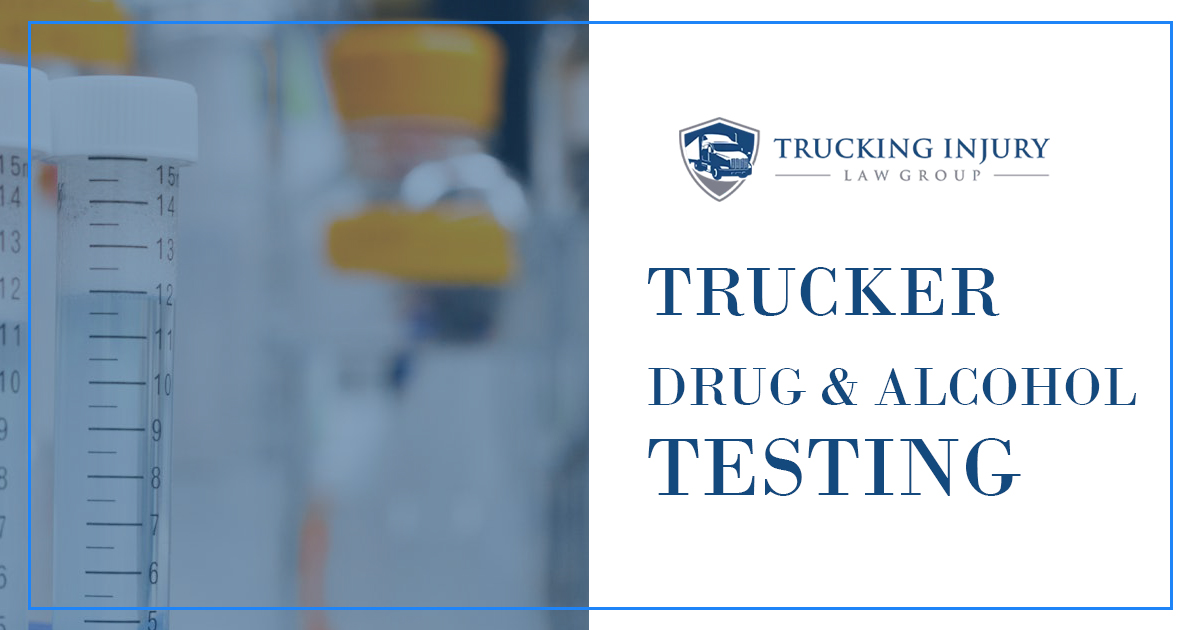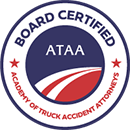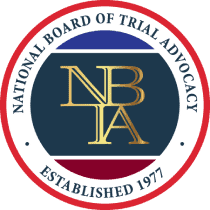Drug & Alcohol Testing for Truck Drivers

The Federal Motor Carrier Safety Administration (FMCSA) enforces all regulations for truck drivers across the United States. This also extends to rules regarding drug and alcohol testing for commercial drivers. These policies ensure that drivers do not get behind the wheel while impaired, causing deadly accidents on the road.
The FMCSA has established strict guidelines for testing procedures, including:
- Who must be tested
- How often testing should occur
- Which substances tested
The regulations apply to all commercial drivers who operate vehicles that weigh over 26,000 pounds, transport hazardous materials, or carry at least 16 passengers.
The FMCSA also requires employers to implement a drug and alcohol testing program for their drivers, which includes pre-employment testing, random testing, and post-accident testing.
At the Trucking Injury Law Group, we know that drivers under the influence are serious safety hazards on the road. According to the FMCSA’s recent data, 2.7% of all fatal truck accidents had a driver under the influence.
Let’s look at all the regulations that the FMCSA requires for testing, along with providing a few resources to help drivers and companies abide by these rules.
Standard Testing for Commercial Drivers
The FMCSA requires testing in various situations. Here are a few scenarios in which a driver would be tested for drugs or alcohol.
Pre-Employment
Before a driver can be offered employment, they need to be tested for the presence of controlled substances. With this, the company hiring the drivers can be assured they are drug-free and can safely perform their duties. This procedure involves a urine test that screens for:
- Marijuana
- Cocaine
- Amphetamines
- Opioids
- Phencyclidine (PCP)
The sample is analyzed in a third-party laboratory, ensuring the accuracy of the results. All employers will receive the outcome of this test before they make a hiring decision. If the potential hire does test positive, the company can request another test or refuse to provide an employment offer. These tests are not to single out any drivers. Instead, they are a safeguard to make sure that any driver who is hired meets the requirements for the job, including being fit for duty.
Reasonable Suspicion
Another type of drug or alcohol test occurs if there is reasonable suspicion. If someone suspects a driver is using certain substances, a test can be ordered. Usually, there must be valid signs of impairment, such as an unsteady walk or slurred speech. Also, if there is any sign of aggressive behavior or erratic driving consistent with substance abuse, then the company can obtain a test. These reports of possible drug or alcohol use must come from reliable sources, such as coworkers or supervisors.
Once again, the testing aspect is pretty straightforward. A company official or supervisor will notify the individual that they must be tested. With that, they are temporarily relieved of all duties during the process. The employee will be escorted to collect a sample.
While some might see this testing as a form of punishment, it is to ensure that all workers adhere to the FMCSA standards. If someone is suspected of using drugs or alcohol, they are a danger to themselves and everyone else on the road. As a result, they need to be removed from their driving duties.
After an Accident
Post-accident testing is mandatory if a driver is involved in an accident. These tests determine whether substance usage led to an incident. There are two types of post-accident testing: drug testing and alcohol testing. Drug testing must take place within 32 hours of the on-site accident investigation, while alcohol testing must take place within 2 hours of the accident.
Depending on the circumstances, these tests must be conducted:
- If the accident caused a fatality, with a citation to the driver, then they will be tested for both drugs and alcohol.
- If there was a fatality and no citation was issued, then the driver must be alcohol tested.
- If there were bodily injuries with immediate medical assistance and the driver received a citation, drug and alcohol testing is required.
- In cases with bodily injuries and no citation, then no testing is needed for the driver.
- If there is disabling damage that requires a tow away, and there is an issued citation, the driver will need to be tested for drugs and alcohol.
- Once again, if there were no citations in this scenario, the driver would not need to be tested.
Other Drug and Alcohol Testing Requirements
Along with the above, there are other times when drug and alcohol testing may be required.
Random testing is required throughout the year and is conducted without warning. With that, drivers are selected at random. This testing can deter drug and alcohol use among commercial drivers.
Return-to-duty testing is required for drivers who have:
- Previously tested positive
- Refused to take a test
- Violated regulation
A negative result is required before resuming driving duties to ensure that the driver is no longer under the influence.
Finally, follow-up testing may be prescribed by a substance abuse professional following a positive test result. This involves a minimum of 6 directly observed tests in 12 months. However, it can be extended up to four years.
Drug and Alcohol Testing Procedures and Resources
When it comes time to complete the test, it must be conducted by a certified DOT/FMCSA service agent. These individuals are responsible for ensuring that the test and samples all meet the stringent standards. They will collect the samples and then deliver them to a certified laboratory. After that, a medical review officer, who is also a licensed physician, will review the results and verify them.
If you would like to learn more about the process and requirements for drug and alcohol testing, here are a few resources from the FMCSA.
- Drug and Alcohol Testing Brochure for Drivers: Understanding drivers’ rights and responsibilities.
- Best Practices for DOT Random Drug and Alcohol Testing: Tips for compliance.
- ODAPC’s Employee Handbook for DOT Drug and Alcohol Testing: Detailed guidelines for drug and alcohol testing.
- DOT’s “Am I Covered?” Tool: Determine whether a driver is subject to testing regulations.
- DOT 5-Panel Drug Testing Notice: Learn about the substances tested.
- DOT Direct Observation for All Return-to-Duty & Follow-Up Drug Testing Notice: Procedures for return-to-duty testing.
With all these strict requirements, the FMCSA and Department of Transportation ensure that all commercial drivers operate their vehicles in a safe and sober manner.
Any accident with a truck driver under the influence has the potential to cause serious injuries and even fatalities. These rules help to protect everyone on the road.
If you have been injured in a commercial trucking accident with a driver under the influence of drugs or alcohol, our team at Trucking Injury Law Group is ready to help with a free consultation.





